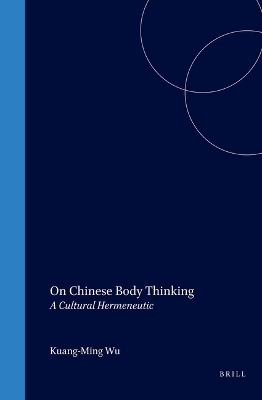Philosophy of History and Culture
1 primary work
Book 12
On Chinese Body Thinking
Published 1 February 1997
This book uses Western philosophical tradition to make a case for a form of thinking properly associated with ancient China. The book's thesis is that Chinese thinking is concrete rather than formal and abstract, and this is gathered in a variety of ways under the symbol “body thinking”. The root of the metaphor is that the human body has a kind of intelligence in its most basic functions. When hungry the body gets food and eats, when tired it sleeps, when amused it laughs. In free people these things happen instinctively but not automatically.
The metaphor of body thinking is extended far beyond bodily functions in the ordinary sense to personal and communal life, to social functions and to cultivation of the arts of civilization. As the metaphor is extended, the way to stay concrete in thinking with subtlety becomes a kind of ironic play, a natural adeptness at saying things with silences. Play and indirection are the roads around formalism and abstraction. Western formal thinking, it is argued, can be sharpened by Chinese body thinking to exhibit spontaneity and to produce healthy human thought in a community of cultural variety.
The metaphor of body thinking is extended far beyond bodily functions in the ordinary sense to personal and communal life, to social functions and to cultivation of the arts of civilization. As the metaphor is extended, the way to stay concrete in thinking with subtlety becomes a kind of ironic play, a natural adeptness at saying things with silences. Play and indirection are the roads around formalism and abstraction. Western formal thinking, it is argued, can be sharpened by Chinese body thinking to exhibit spontaneity and to produce healthy human thought in a community of cultural variety.
